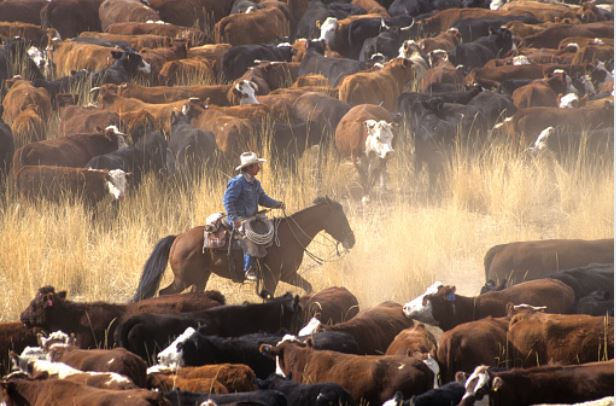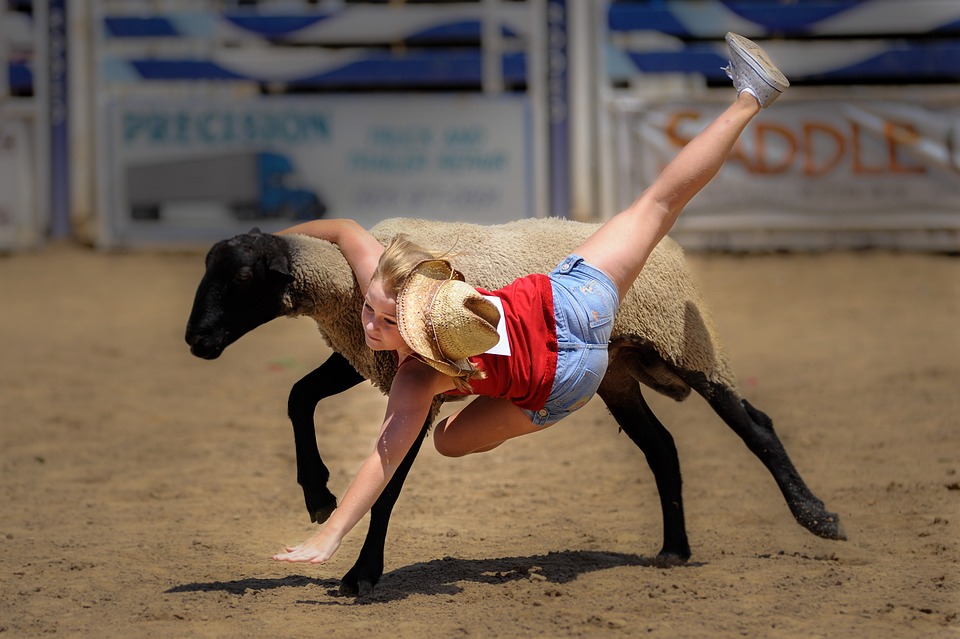One of the most popular speakers at Club 20 in the 1990s was a Montana logger named Bruce Vincent, founder of a PR firm called Environomics, Inc. He was, and is, one of the country’s most inspiring and entertaining speakers on natural resources and conservation issues. I still remember his description of “the Walt Disney view of nature: wolves raising bunnies in old growth forests from sea to shining sea.”
It is shocking how many people confuse that fantasy with reality, thinking wolves can peacefully coexist with all the other cute animals. That has been a utopian dream for centuries, perhaps since the 8th Century BC when Isaiah prophesied that someday, “The wolf will live with the lamb, the leopard will lie down with the goat, the calf and the lion and the yearling together; and a little child will lead them.”

That will be a great day, but that day is not now. Today’s reality is more like, “The wolf will eat the lamb, and the goat, and the calf, and the yearling, and no one will lead them.” Sorry, but nature is cruel, as Coloradans are seeing now that the first group of imported wolves settles in.
This month, Colorado Parks and Wildlife (CPW) released its first “Colorado Gray Wolf Annual Report,” and it attracted immediate attention – partly because of what it does not say. It covers what is called a “biological year,” based on the reproductive cycle of wolves, namely April 1, 2023, to March 31, 2024. Because CPW chose spring-to-spring as its year, the agency came under fire right away, because that timeline does not include the dozens of livestock and dogs killed by reintroduced and migrating wolves, or the decision to recapture and relocate a problem pack from Grand County. That all happened after March 31, so the report contains no discussion about any of that controversy.
The report chronicles the two and a half years of planning after the 2020 ballot initiative requiring reintroduction on the Western Slope. It contains informative details and graphics about the process for capturing wolves in Oregon, translocating them to Colorado, and releasing them into the wild. And it explains CPW’s sophisticated monitoring process for keeping track of the animals’ movements and activities.
Much of the criticism is about the “biological year,” which may have been selected specifically to avoid reporting on livestock depredations, although those will certainly be chronicled in next year’s report. It is noteworthy partly because the other western states that issue annual wolf reports – Oregon, Montana, Washington, Wyoming, Arizona, and New Mexico – all use the standard calendar year. Wolves migrating from Wyoming have also been killing Colorado livestock for at least four years, so the failure to include any depredation data just seems disingenuous to some. Whether the report should include information about wolves that were not part of the reintroduction, though, is a debatable question and people will, no doubt, debate it until next year’s report.
Others have criticized CPW for being slow to attribute livestock attacks to wolves, for bringing in wolves from known livestock-preying packs despite promising not to do so, and for refusing to take out problem wolves as the adopted management plan suggests.
Some ranchers are so upset about CPW’s wolf management that they have told reporters the wildlife officials are no longer welcome on their property. A couple others have signed an open letter blaming Governor Polis personally for micromanaging CPW and calling on the federal government (U.S. Fish and Wildlife Service) to take over management from the State.
Their frustration is understandable, but a federal takeover is almost as bad an idea as the original ballot initiative. Wildlife belongs to the state, not the federal government, and its management has always been up to states. That is a matter of federal law, and of the constitutions and laws of every state. A federal takeover of wildlife management would be profoundly more consequential than anything related to wolves.
The larger conclusion Coloradans should reach from this controversy, as noted in previous columns, is that managing wildlife by ballot initiatives is foolhardy. However appealing voters may consider the idea of wolves howling in the wilderness, the reality of wild animals is far less romantic.
Isaiah promised that one day, “The cow will feed with the bear and their young will lie down together.” But until that millennium, the cow will be food for the bear and their young will soon learn who is the diner and who is the dinner.





